In our latest edition of Alumni Spotlight, the Circle team caught up with Tang Chek Keng, Chief Financial Officer (CFO) and Executive Board member for Asia Pacific (APAC) at LGT Private Banking. From his early days at KPMG to leading regional strategy and finance across seven markets, Chek Keng shares how his foundational years shaped his leadership journey – and offers candid, thoughtful advice for the next generation of professionals.
If you’re thinking of recapturing that sense of belonging, have a look at career opportunities here. There’s always an opportunity to make your mark, thrive with us, and learn for a lifetime.
Hello Chek Keng! Tell us about yourself.
I’m the CFO for APAC at LGT Private Banking and a member of the Executive Board for the region. In this role, I work closely with our regional management team to shape and deliver our business strategy, and achieve our financial goals.
My team supports this by delivering clear financial analysis and forward-looking insights that help drive decision-making and practical outcomes. It’s rewarding to see how our input shapes business results. The Finance team I lead includes professionals across our markets, covering functions such as financial planning and analysis, regulatory and financial reporting, taxation and transfer pricing, and business performance management. I enjoy travelling across our seven APAC offices – it’s a chance to connect with colleagues, learn about local nuances and better understand the unique opportunities and challenges in each market.
I also represent APAC in Group-level discussions on finance-related matters like business planning, budgeting, profitability, tax, transfer pricing and ad-hoc topics such as acquisitions.
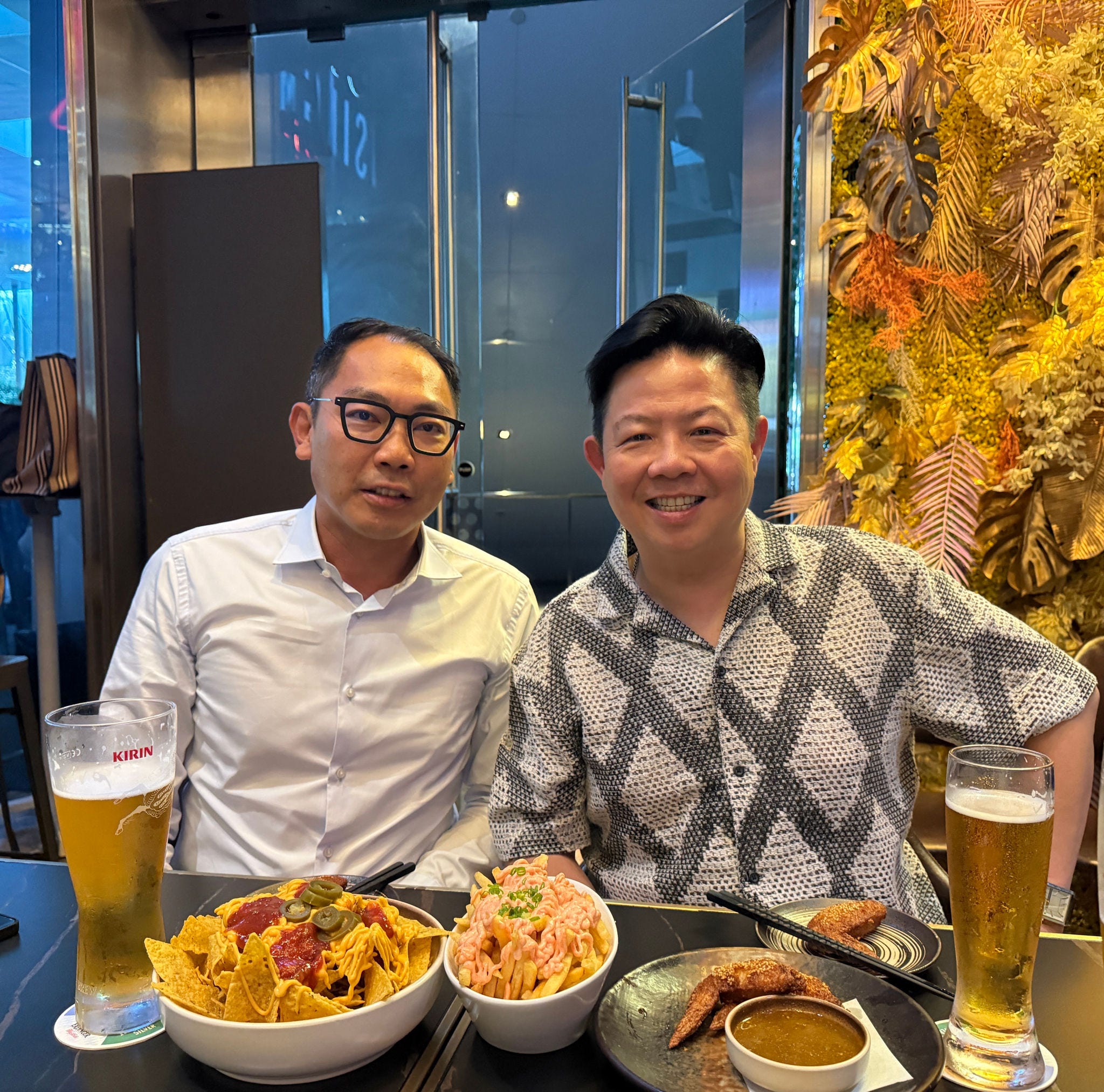
From left: Tang Chek Keng with Peter Lim, KPMG’s Head of Alumni Relations
Could you share about your experience in KPMG?
I joined KPMG because during the interviews, it was clear that the firm valued potential and attitude – if you were willing to step up, opportunities would follow. That turned out to be very true over my 12 years in Singapore and London. A personal highlight: KPMG even brought me together with my wife during my first secondment to London!
My last role in the firm was as the Head of the Financial Services Audit Business Unit (FS BU), but what I value most are the relationships I built over the years. I was lucky to have great mentors and supportive colleagues – many of whom I’m still in touch with today. They kept me grounded, helped me think through complex issues, and shaped my work ethic and values.
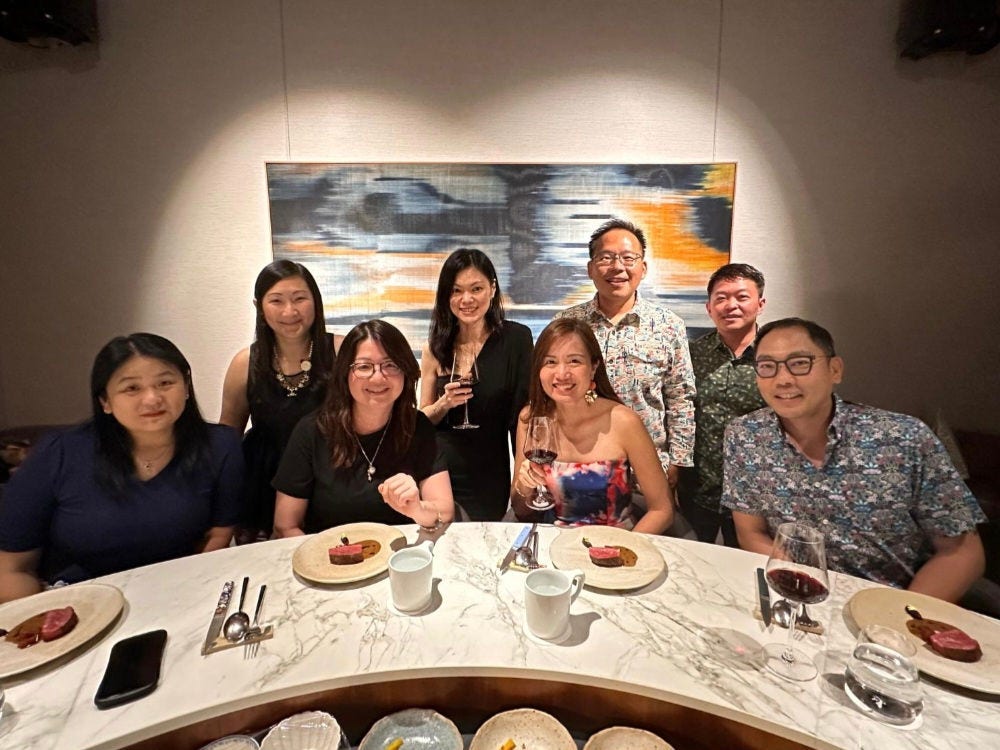
Catching up with fellow KPMG alumni over good food and great company
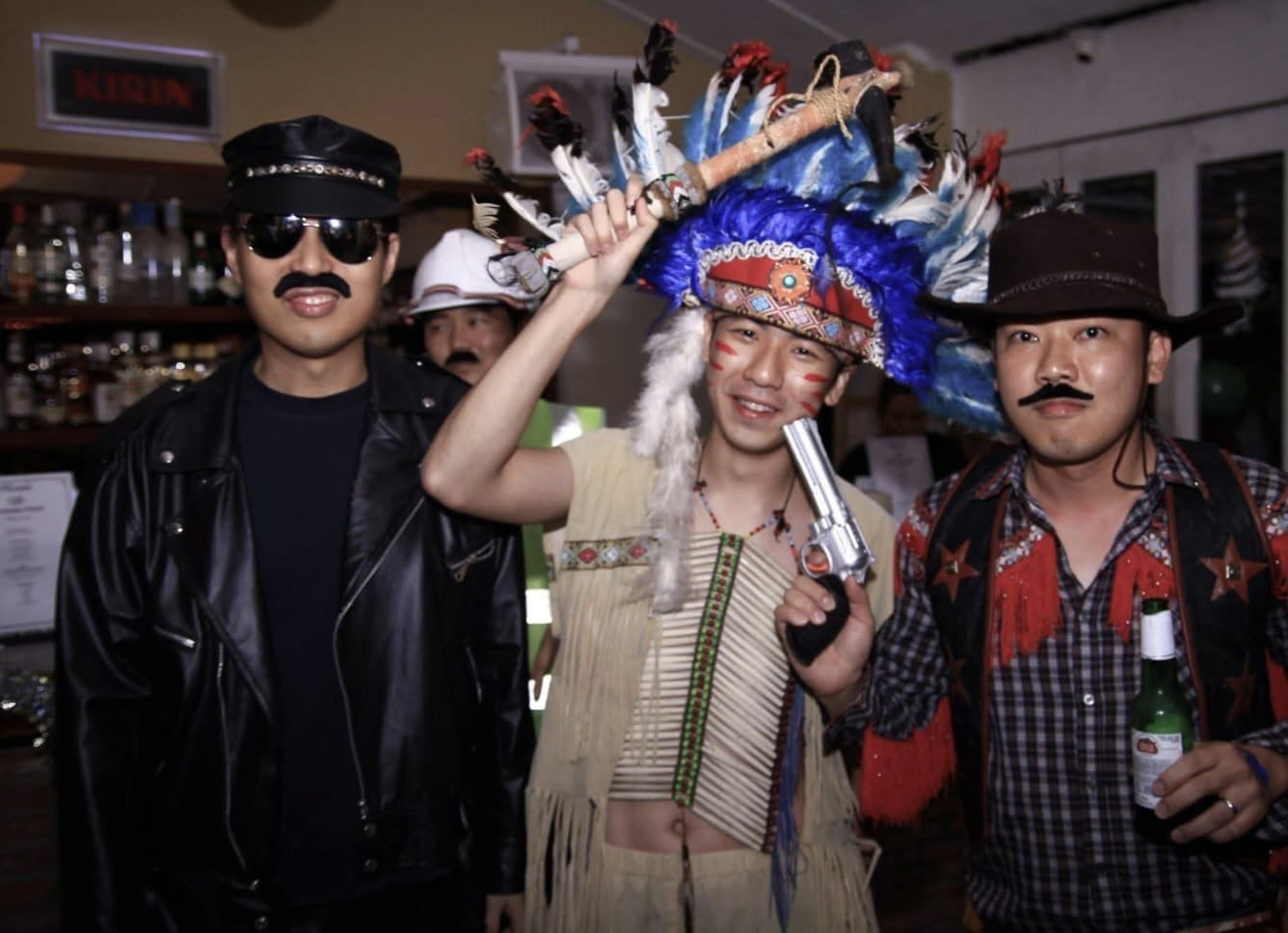
Dressing up during the FS Christmas party in 2011
How has your time in KPMG contributed to your career growth and development?
Each stage of my time at KPMG taught me something meaningful.
As an Associate: always strive for improvement and not blindly follow the status quo – don’t blindly “follow the past year’s files”.
As a Senior Associate: learn to hold your ground when you believe in your judgement, even when it’s tough – particularly important during management letter discussions.
As a Manager: speak up and do what’s right, even if it’s unpopular – such as handling pushback from clients.
As a Senior Manager: be solution-oriented and responsive – this builds trust and really helps during fee discussions.
And finally, as a Department / BU Head: be authentic and supportive, and not shy away from hard conversations when needed.
What are your thoughts on how your career has panned out?
I joined ABN AMRO Bank in 2013 as Deputy Country CFO in Singapore. Six months later, I stepped into the CFO role for Singapore and Private Banking (Asia and Middle East) after my predecessor left earlier than expected.
The first year was intense – I had to quickly learn new skills and understand the business at a deeper level. I relied heavily on what I learnt at KPMG, especially in staying grounded and asking for help when needed.
My focus on finance transformation and team development paid off – we became a high-performing team. Eventually, the business was sold, and I transitioned to LGT Private Banking in 2017. Looking back, I’m grateful for the support and the chance to apply what I learnt in new and challenging ways.
How has the accounting profession changed since your time at KPMG, and what should professionals keep in mind to stay relevant?
When I first started, everything was still on paper – and I remember sharing a LAN cable with three other Associates just so we could take turns to send and receive emails.
I even recall sending my management letter findings (together with my Senior Associate then, who is now a Partner) to the client via a fax machine, only to find out days later that while the fax machine did work, she couldn’t respond because she had been admitted to hospital!
It’s a very different and exciting time now for accounting professionals. We’re no longer viewed just as bean counters. Expectations have grown – we’re now expected to provide strategic insights and guide decisions with strong data and business understanding.
To stay relevant, it’s important to really know your client’s business and offer forward-looking perspectives that support effective decision-making, and not just report the past. At the same time, it is critical to understand their data and curate the key data points, in order to provide data-backed observations and insights.
What do you miss most about being in KPMG?
The people in KPMG. Fortunately, I continue to keep in contact with many of them, creating new memories.
There are too many memories that come to mind from my time with KPMG! From unforgettable FS department parties and trips (Phuket was a classic), to leading client discussions with global Managing Directors and getting buy-in, playing for KPMG in the semi-finals of the inter-CPA football tournament, or rallying 30 “volunteers” overnight to complete an urgent engagement for a court hearing – it was always intense, but it built character.
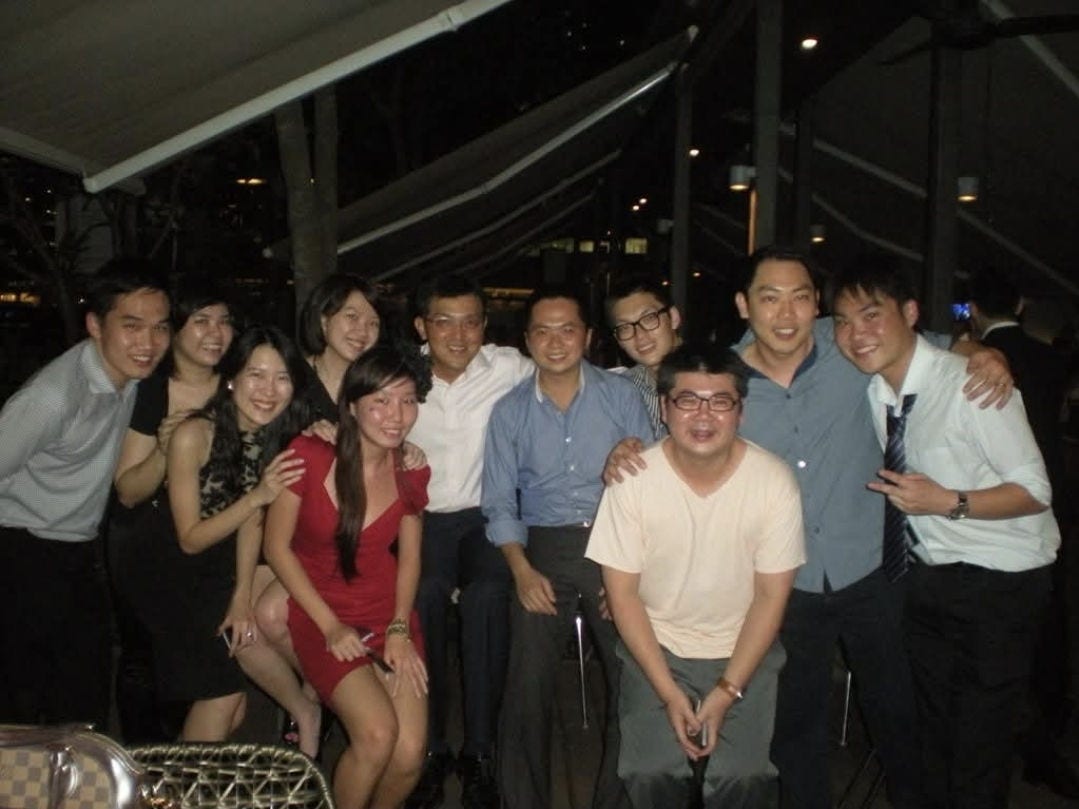
With FS colleagues during the department Christmas party
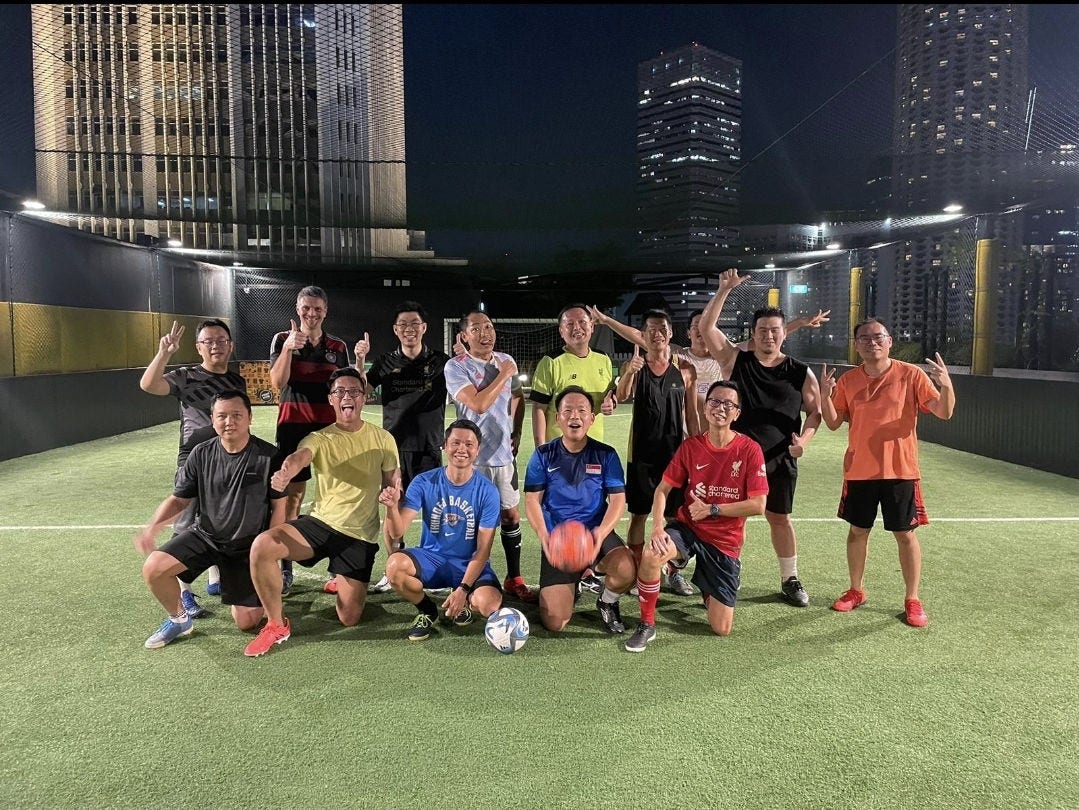
Regular after-work football sessions with former colleagues
What are some nuggets of wisdom that you would give to the new generation of KPMG professionals?
Firstly, that pain is temporary, “glory” is forever – the peak period will pass, and you’ll grow from it. Secondly, with great power comes great responsibility – every promotion is a chance to lead with humility and lift your team. Stay authentic.
What does “Be in Front” mean to you?
To me, it’s about being willing to step forward – with confidence and clarity – to help my stakeholders move forward too. I live this by standing behind my views, even when they’re not popular, and by focusing on solutions, not just problems.
Click here to read more about Be in Front and what it can do for you.
Finally, if you were to meet your younger self for coffee, what would you tell him?
You can make a difference – just start where you are.





